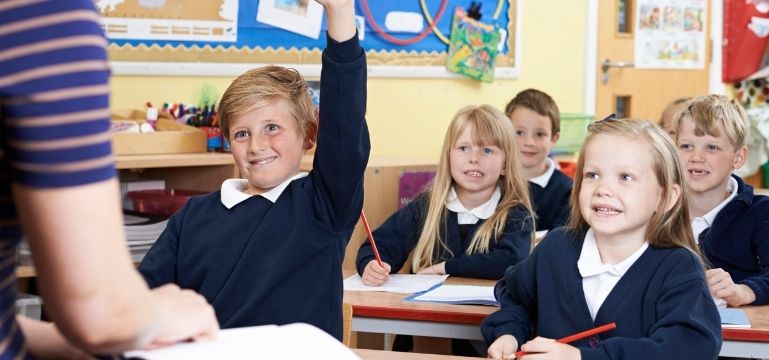Staff are committed to promoting languages and as a result, pupils across the school are highly engaged in language learning throughout the school day. Teachers ensure that planning develops pupils’ skills progressively. Younger pupils for example, use simple Welsh and French words, phrases and greetings. Older pupils use increasingly sophisticated vocabulary and phrases in their project learning. Teachers plan effectively for pupils to learn and improve their skills in authentic contexts and incidentally, for example through commands, instructions and learning resources. Recently, during their To Infinity and Beyond project, pupils in Year 5 and 6 enjoyed a visit to the school’s ‘International Space Station’, where they had opportunities for critical thinking, decoding French phrases into English, using QR codes to find BSL signs and subsequently created video presentations for other pupils. These activities enable pupils to use their translanguaging skills to decode phrases at different ability levels. Pupils enjoy applying their knowledge of vocabulary to other aspects of their learning. For example, they create sentences about different planets in Welsh, using familiar stems to begin their sentences. Over time, as pupils notice their own vocabulary and syntax developing, they grow in confidence and enthusiasm.
Pupils’ ideas and suggestions are key at Langstone, and they regularly influence decision-making. The pupil pioneer team changed their name from ‘Criw Cymraeg’ to ‘Language Legends’ to reflect the school’s plurilingual nature. The Language Legends group meets fortnightly with the LLC team and makes contributions to the School Development Plan. They take part in learning walks around the school, lead on ‘Siaradwch, Parlez, Speak’ assemblies to introduce new language patterns and signs, promote language and support ‘Patrwm y mis’ assemblies. The ‘Patrwm y mis’ provides a targeted focus Welsh phrase or question and answer, differentiated for younger pupils, for example Sut wyt ti? / Sut wyt ti’n teimlo? This approach is often linked to BSL, encouraging pupils to become plurilingual.
The school’s continuous focus on providing high-quality professional development ensures that staff improve their skills. This includes time for self-directed study. Staff use online resources and attend evening Welsh and BSL courses to develop their confidence and subject knowledge. The school’s weekly ‘Paned a Sgwrs’ provides an opportunity for staff to meet informally before school to practise their Welsh. This has a positive impact on building staff confidence in using the Welsh language.
Pupils access a range of texts in Welsh and French in classroom ‘Cornel Darllen’ and generally in their learning resources. This includes exposure to languages through feedback and marking. Music lessons provide an ideal opportunity for teachers to develop pupils’ knowledge and understanding of musical terminology, bringing in elements of Italian vocabulary (forte, piano, staccato, etc) and terms such as allegro and andante, are used across the curriculum, for example in gymnastics and dance teaching and learning.


